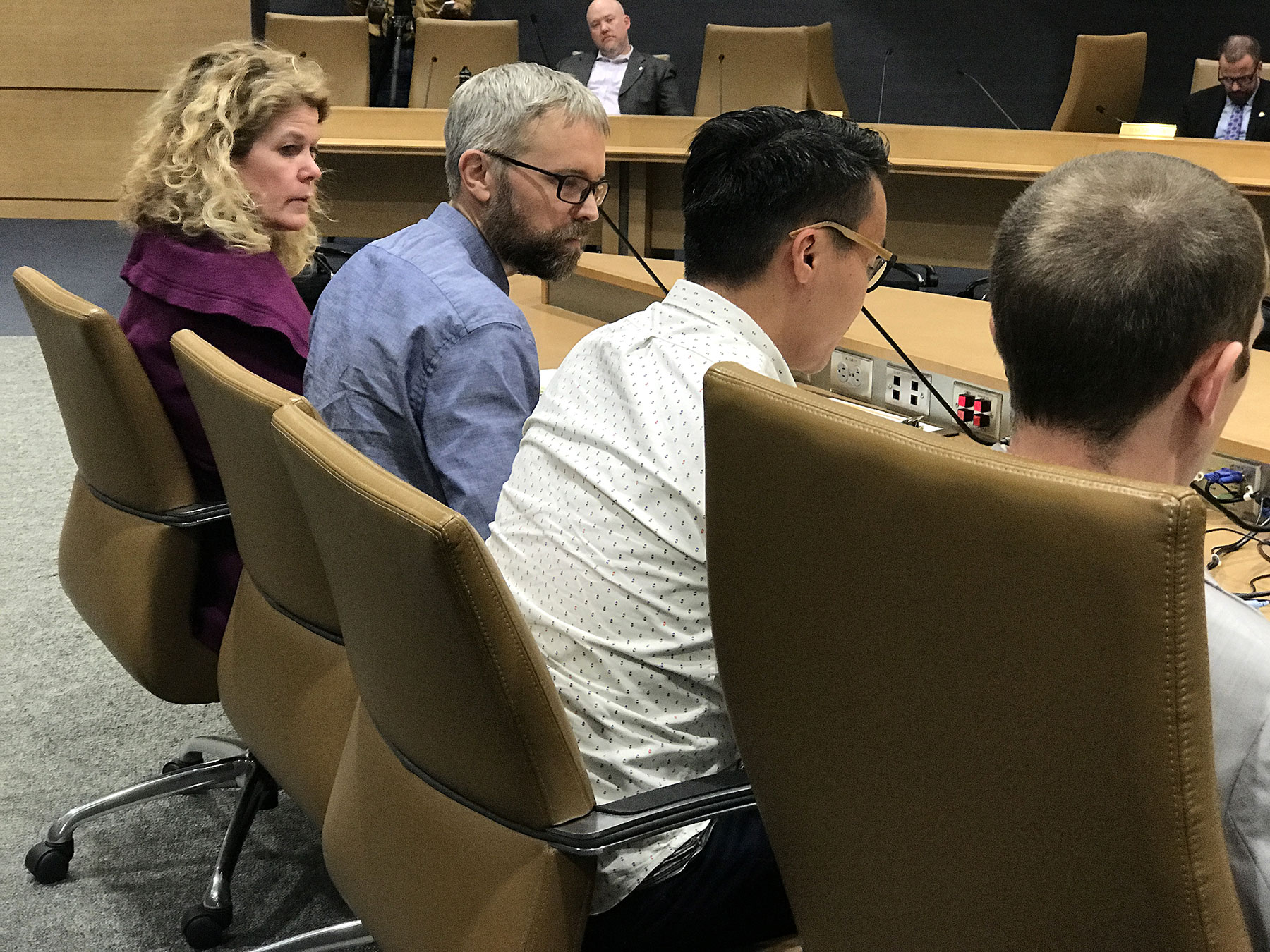Child protection workers and other advocates for kids are strongly backing improved training for workers and other solutions to help the besieged system.
AFSCME members from Locals 34 and 151 testified along with other children’s advocates before the Senate Committee on Human Services Reform Finance and Policy Wednesday.
Caseloads across the child protection system have soared since well-intended reforms led to an increased number of reports, a jump in investigations, more children being placed out of their homes and a shortage of foster care placements.
“Our workforce is in crisis,” said Traci LaLiberte, who heads the U of M’s Center for Advanced Studies in Child Welfare. “Our state training system is unable to meet the needs currently and into the future … and to address all the needs that have been created as a result of the child welfare reforms that really have tried to move the state in a positive direction.”
She encouraged lawmakers to pass Senate File 2979 to create an academy to train workers and study high turnover rates.
“What is happening now is people are not getting training,” LaLiberte testified. “They’re getting full workloads, and they’re leaving before they even get to the training.”
David Yang of Local 34 says it took him four months to get training in Hennepin County after he started. AFSCME members in some counties report that wait is now as long as nine months. The training issue is made worse by high turnover.
Ramsey County child protection worker Melissa Dolan of Local 151 has a caseload of 18 families and 34 children, and a 19th case just arrived, a common scenario. The three AFSCME members who testified Wednesday represent 100 children between them.
When Dolan started her job in 1980, her caseload averaged 10 families. That’s the recommended amount.
“It gave me time to mentor other workers,” Dolan says. “It gave me time to work intensively with families. When we build a trusting relationship with families, they’re much more willing to listen and the chances of reunification greatly improve.”
Now, she says, senior workers have little time to train new coworkers.
“We need more workers, we need more training and we need more support,” Dolan told lawmakers.
Eric Jayne of Local 151 told lawmakers that child protection workers like him are responsible for making sure kids and their families get services including mental health and addiction treatment, medical referrals and behavioral support. They visit kids and check in with their parents, foster families, Guardians ad Litem and schools.
Then there’s the paperwork, which takes 40 hours a week, and a computer system that’s so antiquated, it requires 150 clicks just to change an address on a case plan, Jayne says. (He counted.) Caseworkers often have to put paperwork aside so they can focus on kids, but that can result in financial penalties for counties.
Along with a training academy, AFSCME members are asking lawmakers to:
- Establish and enforce safe caseload standards and provide adequate funding to meet those standards in a reasonable time.
- Hire case aides so workers can spend more time doing social work, and less on onerous paper work.
Repeal or suspend financial penalties that counties incur – 10 to 20 percent of child protection grant allocation dollars – when they can’t meet timeline standards. - Fund opioid treatment programs to reunite families faster and more often.
- Provide automatic eligibility to the Child Care Assistance Program for foster care providers to help cover the cost of child care. That would help recruit more foster parents, provide more placement options for kids and reduce caseloads.
“These are children who are valuable, they are lovable,” Jayne says. “They deserve a permanent home. They deserve to have child protection workers who have the time so they can actually be a positive force in their lives. Currently, it’s difficult to have the opportunity to be that positive force in their lives – and not only their lives, but their parents’ lives so the kids can come safely home.”
The committee recommended the training academy bill pass, and sent it on to the Committee on State Government Finance and Policy and Elections.
Hat tip: Lynette Kalsnes, AFSCME Council 5
